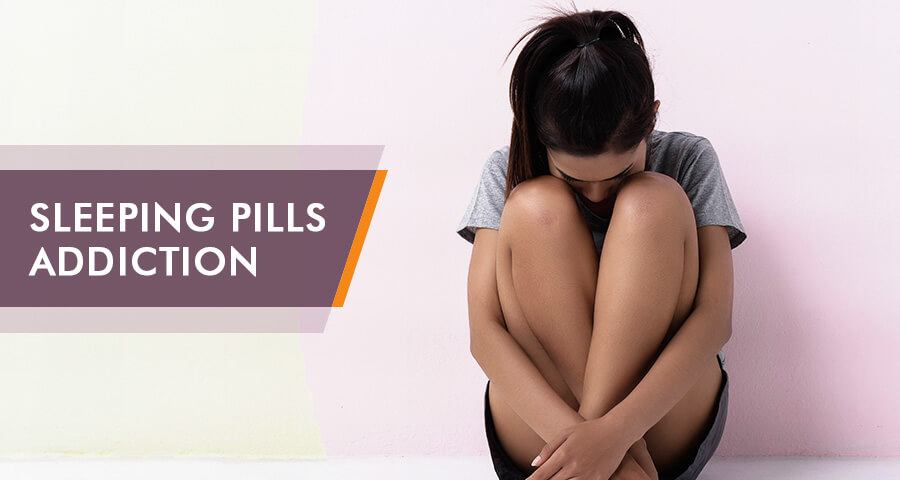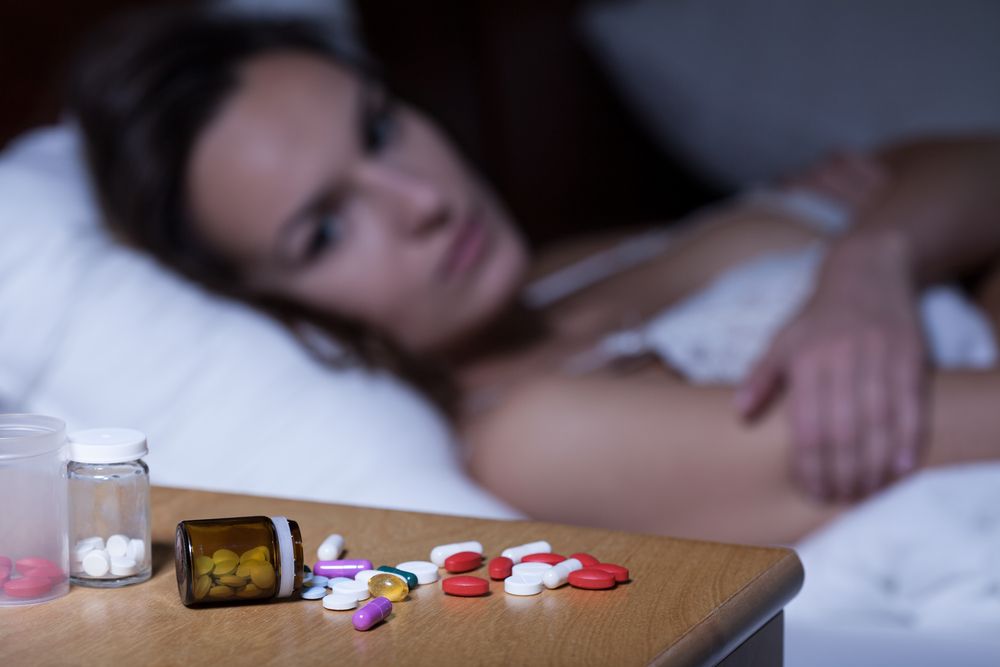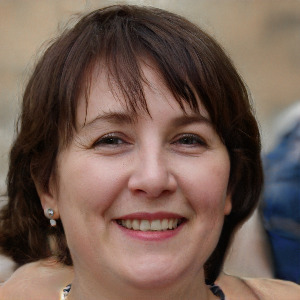
Sleeping pill addiction is a serious problem that affects many people around the world. A lot of people take sleeping pills to help them fall asleep at night, without realizing that certain sleeping medications can become addictive. If a person becomes addicted to sleeping aid prescriptions or over-the-counter sleeping pills, then it can become a serious health risk. Here is a closer look at sleeping pills and the risks that they bring with them. Understanding key information about sleeping pills can help to know how to prevent becoming addicted to them, and how to get effective treatment if a loved one becomes addicted.
Table of Contents
What are Sleeping Pills?
Sleeping pills, also known as sedative-hypnotics, are medications designed to help individuals with sleep difficulties, i.e., insomnia, or for patients connected to mechanical ventilators.
They target the central nervous system to induce drowsiness and promote sleep. These medications are commonly prescribed for short-term use to address insomnia or other sleep disorders, and they come in various forms, such as benzodiazepines, non-benzodiazepines, and over-the-counter options that we will review below.
What are the Types of Sleeping Pills?
There are many types of medications for sleep that are used around the world. The purpose of these medications is to assist people with the process of falling asleep. People are supposed to be able to fall asleep naturally. However, not everyone can do this, due to a variety of reasons. There are two basic categories of sleeping medications, over-the-counter sleep aids, and prescription sleep aids.
Over-the-counter sleeping medications are considered to be safer and to pose much less of a risk of creating an addiction. This is why people are not required to possess a prescription from a doctor to obtain them. Many OTC sleeping pills rely on antihistamines and the pain reliever, Acetaminophen, to create their drowsy effects. Acetaminophen is found in many popular pain-relieving drugs, such as Tylenol PM and Aspirin-Free Anacin PM.
Prescription sleep medications, on the other hand, use different ingredients and can be a lot more powerful. Many prescription sleep medications are sedative-hypnotics and work by manipulating receptors in the brain to slow down the nervous system. Some sedative-hypnotic sleeping pills are benzodiazepines, and some are not.
Benzodiazepine sleep medicines are considered to be much more risky for creating both psychological and physical dependencies than other types sleep medications. This is especially true because the brain receptors can become less sensitive to these sleep aids in just a few weeks. Then, a higher dose may be needed to get the same effect. Further, intense withdrawal symptoms and insomnia can result when the medications are stopped.
There are some sedative-hypnotics which work in the same area of the brain, but which are not benzodiazepines. These sleep aids are frequently used in place of benzodiazepines because they are less likely to create dependencies. However, it is still possible for them to develop addictions, and that is why they are classified as controlled substances. Ambien, Lunesta, and Sonata are all non-benzodiazepine prescription sleep medications. There are also barbiturate-based sleep meds, such as Amytal and opioid-based ones such as Tramadol.
What is the best prescription sleep medicine? The answer is most likely non-benzodiazepine sleep aids which are designed for long-term use with a meager chance of creating addiction. Ambien, Lunesta, and Sonata would fall in this category.
The Signs and Symptoms of Sleeping Pill Use
 People who use certain types of sleeping pills or sleeping tablets frequently can develop an addiction. These addictions can become extremely dangerous and problematic, and they can be a serious threat to a person’s health. Here are some of the most common signs of sleeping pill abuse.
People who use certain types of sleeping pills or sleeping tablets frequently can develop an addiction. These addictions can become extremely dangerous and problematic, and they can be a serious threat to a person’s health. Here are some of the most common signs of sleeping pill abuse.
Cravings for sleeping pills
Craving sleeping pills is a definite sign that a patient may have become addicted to sleeping pills. It is not normal for the body to crave a foreign chemical. So, if patient is found craving a specific sleeping pill, then it could be a sign that their body has become used to it, and now wants to have this chemical regularly.
Memory Loss
Memory loss can be another sleeping pill addiction symptom. This symptom typically occurs if a person is abusing sleeping pills and using them more than he or she should. Memory loss also occurs when other substances are being abused, such as alcohol. Moreover, alcohol and sleeping pills taken together exaggerate the possible side effects. If one is experiencing sleeping-pill caused memory loss, then it should be a wakeup call to seek sleeping pill addiction treatment.
Slurred Speech
No matter how long sleeping pills take to kick in, slurred speech is another one of the vital sleeping pill use signs. This is another symptom that can occur with alcohol use, like memory loss. If slurred speech has been noticed, then it could be a sign that sleeping pills are being used.
Unsteady Gait
This means that the person is walking funny, or cannot walk in a straight line. If a person has recently used sleeping pills, then there is a good chance that their gait may be a little unsteady. If he or she has taken a larger dose of sleeping pills, then the gait will tend to be significantly more unsteady.
A Lack of Coordination
This is similar to an unsteady gait, and it mostly means that the person’s movements are not normal, and they may look odd and not smooth. For example, the person may try to move from sitting in a chair to standing up and may wobble while he or she is performing this motion.
An Inability to Focus
It is much harder for people who are using sleeping pills to focus. This is because the chemicals in the sleeping pills affect the brain and make concentration harder. If a loved one cannot focus on the present moment and the environment around, then he or she could be on sleeping pills.
Doctor Shopping
People who are abusing sleeping pills frequently run out of their prescriptions. For this reason, they may try to shop around to find as many doctors as possible who will prescribe them so that they can get more sleeping pills. This drug-seeking behavior is typical for other types of drugs too, such as opioids.
Withdrawal Symptoms, Timeline and Detox
Many people who realize that they have a problem with sleeping pills, get treatment for addiction and go into detox. The treatment process is often beneficial when dealing with a sleeping pill dependency. However, people who go through this process often experience withdrawal symptoms and have to stay in treatment for a period. Here are some of the most significant withdrawal symptoms for sleeping pill abuse, as well as key information about the treatment timeline and detox.
There is a wide range of symptoms that might occur when a person is trying to break free of using sleeping pills. These withdrawal symptoms can include:
- Headaches
- Fever
- Delirium
- Racing Pulse
- Nausea
- Sweating
- Shaky Hands
- Irregular Heartbeat
- Seizures
- Insomnia
- Depression
- Anxiety
Are sleeping pills bad for the individual? The severity and length of sleeping pill withdrawal symptoms depend heavily on some factors including the type of sleeping pill that the person was using, the length of time that he or she was using the sleeping pill, and several other things. Here is a timeline of the withdrawal symptoms during sleeping pill detox.
- Week 1 – This is when the symptoms of sleeping pill withdrawal first appear. Typically, they will start to show up roughly 24 hours following the last dose. Many symptoms will usually appear during this time. If patients were taking a more dominant sleeping pill, such as a prescription benzodiazepine hypnotic sedative, then these symptoms will most likely be a lot more intense. The symptoms which commonly occur about a day after the last dose of sleeping medication include vomiting, mood changes, anxiety, confusion, convulsions, and memory loss. If patients have a severe sleeping pill addiction, then it is best to go through detox under the care of doctors and nurses at a treatment center, if possible. This is because withdrawal symptoms can be severe at times.
- Week 2 – During the second week of sleeping aids detox, the withdrawal symptoms frequently escalate and reach their worst point. Symptoms that may occur during this phase of detox are extreme sweats, panic attacks, depression, increased heart rate and blood pressure, tremors, intense cravings for sleeping pills, and bad insomnia. These symptoms are all caused by the body responding to not having the sleeping pill anymore. This period is the most intense for the detox process regarding withdrawal symptoms. It is essential to be able to access medical treatment during this time if the withdrawal symptoms are extreme.
- Week 3 – During week 3, withdrawal symptoms start to disappear. Many of the physical symptoms will completely go away during this time. As an example, the person may no longer experience extreme sweating or high blood pressure. However, the psychological symptoms of withdrawal can still linger for weeks or even months after the person stops taking sleeping pills and detoxes fully. These psychological symptoms include cravings and depression. But, these too, tend to fade and disappear eventually.
How long does sleeping pill withdrawal last? The answer is that most of the physical symptoms of withdrawal will last for only around 21 days. One may need to take time off of work and enter a rehabilitation clinic to get through this process safely. After the detox period and pass through the withdrawal symptoms, a patient will most likely feel much, much better. As time passes, the cravings for sleeping pills should subside.
Sleeping pill Addiction Treatment and Rehabs
Some people attempt to go through sleeping pill detox by themselves at home or try to replace medicines with homemade sleeping aids. While it is possible to do it by yourself, it is not advised because medical complications can arise during the withdrawal period. This is especially true if prescription sleep aids took place, or have been taking sleep medication for a long period.
Luckily, there are many excellent options for sleeping pill addiction rehab and treatment facilities around the U.S. There are two main types of treatment options inpatient treatment and outpatient treatment.
Inpatient Sleeping Pills Rehab
During inpatient treatment, patients stay at the facility night and day for the duration of treatment. There are many benefits of inpatient sleeping pills best rehab centers. For example, it is a highly scheduled and structured environment. Also, there is staff on hand 24/7 to help if there are any severe withdrawal reactions. Further, because patients are in a controlled environment, it can significantly reduce the chances of a relapse.
This is especially important if the expecting mother is the patient, as taking some sleeping aids while pregnant may lead to dangerous consequences.
Outpatient Sleeping Pills Rehab
With outpatient treatment, patients typically do not sleep at the treatment center, but instead, come during the daytime for treatment for a specific amount of days. Like inpatient treatment, outpatient treatment has some excellent benefits. For example, outpatient treatment, in general, is much cheaper than inpatient treatment. Also, outpatient treatment is more flexible. So, people can often continue to work or stay up with their familial obligations and responsibilities while they receive outpatient treatment. Finally, outpatient therapy can help to set up patients for longer-term care as they get used to coming into a facility for treatment.
Here is a list of some of the best places to get sleeping pills treatment if a loved one have been using sleeping pills dangerously, and have become addicted to them.
Signs of a Good Rehab Center
Professional Staff
A professional and high-quality staff is essential for rehab centers to have. This is because they will be the ones who take care of patients while they are going through the detox and withdrawal process. The detox and withdrawal period can be very intense from both a physical and a psychological standpoint. So, it is crucial for rehab centers to have highly trained and qualified staff members who can assist through this process. This includes doctors, nurses, and addiction counselors. If one wants to get an understanding of the quality of the staff, it is wise to read online reviews from former patients.
A Clean and Attractive Facility
If the decision is to go through sleeping pill addiction treatment, then a patient will most likely be spending a significant amount of time at the facility. Of course, they will spend more time there an inpatient program was chosen. However, even an outpatient program will take some time. So, since patients are going to have to be there for an extended period, and because they are going to be uncomfortable for much of this time, it is essential that the facility itself is very clean and physically attractive. If it is, then it can help to make the overall experience better. It will still be difficult, even in the most beautiful treatment center, but the more attractive and clean the facility is, the better.
A Track Record of Success
When selecting a treatment center to go to, it is essential to prioritize the centers that have excellent track records of success. Rehab centers that have a lot of experience healing people with sleeping pill addictions are more likely to be able to do the same thing. Again, users can read online reviews about recovery rates for the center to find out about its treatment success. One can also call the place and ask them what their recovery rates are. The higher that a treatment center’s recovery rates are, the better.
Treatment of Co-Occurring Addictions
The reason why this is important is that often, sleeping pill addiction goes hand-in-hand with other addictions. For example, people who have sleeping pill addictions also frequently have alcohol addiction, cocaine addiction, heroin addiction, etc. So, if patients have another obsession in addition to a sleeping pill addiction, then it can be extremely beneficial to seek out a treatment center that can treat multiple dependencies at once. Even if they do not have various habits, it can still be wise to select a treatment center that treats multiple illnesses at once because it can mean that the staff has more knowledge about treating addiction in general.
Compatible With Many Insurance Policies
The cost of going to a sleeping pill addiction treatment center can be very expensive. So, when selecting one, one should make sure that the treatment center works with many different insurers, and particular policy covers the treatment that they are offering. If not, then one could be stuck fitting the bill for treatment, which could cost thousands of dollars. To find out whether or not the facility accepts the insurance, one can simply call the rehab clinic and ask them if they take such insurance. If they don’t then one may have to continue looking for another rehab facility which will take the particular insurance. Addiction recovery is hard enough without having to deal with enormous costs. One can also call to their insurance company and get a recommendation from them about which facility to go to.
Sleeping pill addiction is something that can be very serious and cause a lot of major health problems. This is especially true when sleeping pill drugs are taken in addition to other narcotics such as cocaine or heroin as sleeping pill overdose may occur. However, for those with sleeping pill addiction and who are exposed to sleeping pill risks, there is hope. Effective treatment is possible, and after a withdrawal period of several weeks, the body can get clean and adapt to not having sleeping pills in its system anymore. Treatment can be very effective.
Page Sources
- https://medlineplus.gov/ency/patientinstructions/000758.htm


 Reviewed by:
Reviewed by:  Written by:
Written by: 


 FindTreatment.gov
FindTreatment.gov